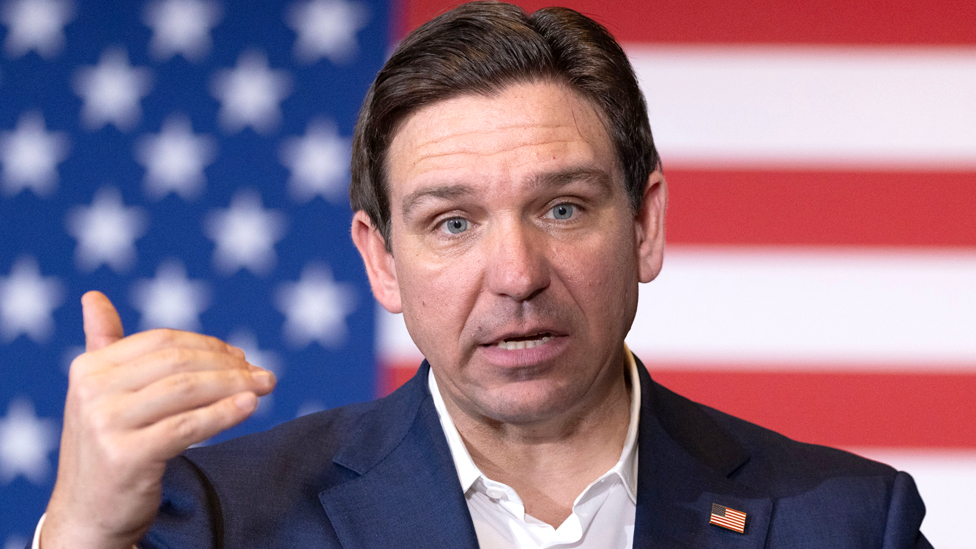Florida governor withdraws from Republican race ahead of Tuesday’s New Hampshire primary
The Washington Post/ Florida Gov. Ron DeSantis on Sunday ended his once-promising presidential campaign, which steadily deflated as he struggled to connect with voters and persuade Republicans to swap Donald Trump for a younger, more disciplined champion of his ideas.
As he departed the contest, DeSantis endorsed Trump, who had relentlessly attacked the Florida governor with demeaning nicknames and charges that he was disloyal. His exit came just two days before voting in New Hampshire’s primary, where Trump appears to be closing in on another victory that would underscore his unrivaled grip on the GOP.
Read also
DeSantis, 45, had seemed to many Republicans like the most viable challenger to Trump after the 2022 midterms, when the governor won reelection by a landslide. But he started to lose ground in polling even before his official campaign launch in May — via a glitchy live chat that neatly embodied the way his grand plans were going awry.
“It’s clear to me that a majority of Republican primary voters want to give Donald Trump another chance,” DeSantis said in a video message he posted Sunday afternoon on the social media site X, formerly known as Twitter. “They watched his presidency get stymied by relentless resistance, and they see Democrats using lawfare to this day to attack him.”
He acknowledged “disagreements” with Trump — he spent the past year effectively calling Trump self-absorbed and ineffective — but suggested Trump’s remaining GOP rival, Nikki Haley, was worse. “We can’t go back to the old Republican guard of yesteryear, a repackaged form of warmed-over corporatism that Nikki Haley represents,” DeSantis said.
Even before DeSantis dropped out, Haley had emerged as the most viable challenger to Trump, polling closer to him in New Hampshire, where independents and moderate Republicans have given her a particular boost. But it’s not clear that she can pull off an upset, and she faces a tough road ahead. On Sunday she said DeSantis “ran a great race” and has “been a good governor.”
“Having said that, it’s now one fella and one lady left,” said Haley, a former U.N. ambassador and former South Carolina governor.
Trump’s campaign said in a statement it was “honored” by DeSantis’s endorsement and said “it is now time for all Republicans to rally behind President Trump” against Biden.
DeSantis echoed Trump’s combative style and “America First” rallying cry while arguing he would be more electable, truer to conservative values and more effective at executing an agenda. He appealed heavily to the party base as someone willing to dig in on polarizing issues and go to battle with critics, the media and companies such as Disney. Struggling to make headway against Trump, he increasingly criticized the former president as “high risk” and “low reward” for the Republican Party.
But the second-term governor’s strategy fell flat as voters refused to leave Trump and even gravitated back to him, galvanized by outrage at the former president’s four criminal indictments. DeSantis alienated more moderate primary voters and donors who increasingly looked to Haley as a Trump alternative. Awkward interactions on the trail dogged DeSantis’s campaign, spawning viral videos and feeding his longtime reputation for aloofness.
A person deeply involved in DeSantis’s campaign, who, like others, spoke on the condition of anonymity in order to speak freely, said the campaign had a host of problems: no coherent message, warring advisers and a weak small-dollar donor program. DeSantis disliked courting donors and activists, this person said, and spent too much time on culture war issues. When he made adjustments, this person said, it was too late.
“At the end of the day, I don’t think any of it mattered with all the Trump indictments,” this person said. “It wasn’t a well-run campaign, but I don’t think the best-run campaign would have beaten Trump.”






















































